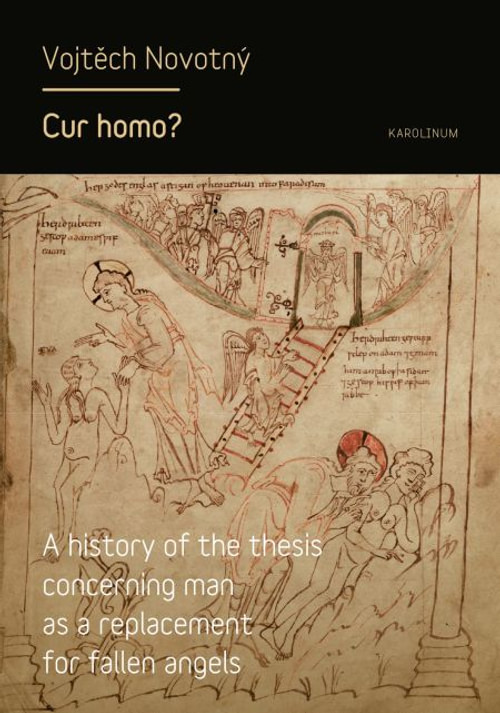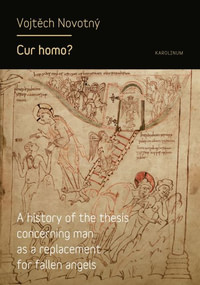
- Úvod
- Novinky
-
Odporúčania
- Všetky Všetky
- Výber kníh o vysťahovalectve a prisťahovalectve Výber kníh o vysťahovalectve a prisťahovalectve
- Februárový kultúrny program na Kozej Februárový kultúrny program na Kozej
- Výber knih o Grónsku a z Grónska Výber knih o Grónsku a z Grónska
- SCANDI 2026 - výber severskej literatúry SCANDI 2026 - výber severskej literatúry
- Najpredávanejšie knihy v roku 2025 Najpredávanejšie knihy v roku 2025
- Knihy, ktoré sme čítali v roku 2025 Knihy, ktoré sme čítali v roku 2025
- Výber detektívok a trilerov Výber detektívok a trilerov
- Výber kníh o hudbe Výber kníh o hudbe
- Výber poézie Výber poézie
- Knihy pre tínedžerov 14+ Knihy pre tínedžerov 14+
- Príbehy pre realistov 9+ Príbehy pre realistov 9+
- Fantastické knihy pre deti 9+ Fantastické knihy pre deti 9+
- Príbehy na prvé čítanie Príbehy na prvé čítanie
- Encyklopédie pre deti aj celú rodinu Encyklopédie pre deti aj celú rodinu
- Výber kníh z vydavateľstva Artforum Výber kníh z vydavateľstva Artforum
- Výber feel-good kníh Výber feel-good kníh
- Výber hrubých kníh, ktoré stoja za svalovicu Výber hrubých kníh, ktoré stoja za svalovicu
- Vedecké pecky roka 2025 Vedecké pecky roka 2025
- Výber kníh pre deti predškolské Výber kníh pre deti predškolské
- Výber slovenskej beletrie Výber slovenskej beletrie
- Výber svetovej beletrie Výber svetovej beletrie
- Vzácne počiny slovenských (ne)vydavateľstiev Vzácne počiny slovenských (ne)vydavateľstiev
- Výber kníh o duši Výber kníh o duši
- Výber kníh o spoločnosti Výber kníh o spoločnosti
- Novembrový kultúrny program na Kozej Novembrový kultúrny program na Kozej
- Výber kníh o histórii Výber kníh o histórii
- Výber českej beletrie Výber českej beletrie
- Malinké knižky Malinké knižky
- Výber maďarskej beletrie Výber maďarskej beletrie
- Výber kníh slovenských autoriek 2025 Výber kníh slovenských autoriek 2025
- Výber kníh z vydavateľstiev Utopia libri, Alarm, KPTL, Neklid, Nevim Výber kníh z vydavateľstiev Utopia libri, Alarm, KPTL, Neklid, Nevim
- Výber kníh o kríze bývania Výber kníh o kríze bývania
- Výber z najpredávanejších kníh v roku 2025 Výber z najpredávanejších kníh v roku 2025
- Desiatka Anasoft litera 2025 Desiatka Anasoft litera 2025
- Odpor a vzdor Odpor a vzdor
- Rebrík
-
Knihy
- Beletria Beletria
- Knihy pre deti Knihy pre deti
- Reportáže Reportáže
- História História
- Umenie Umenie
- Spoločenské vedy Spoločenské vedy
- Náboženstvo a teológia Náboženstvo a teológia
- Prírodné vedy Prírodné vedy
- Životný štýl a zdravie Životný štýl a zdravie
- Predpredaj Predpredaj
- Všetky Všetky
-
Books
- Fiction Fiction
- Children's books Children's books
- Non-fiction Non-fiction
- Arts Arts
- All All
-
E-knihy
- Beletria Beletria
- Knihy pre deti Knihy pre deti
- Reportáže Reportáže
- História História
- Umenie Umenie
- Spoločenské vedy Spoločenské vedy
- Náboženstvo a teológia Náboženstvo a teológia
- Prírodné vedy Prírodné vedy
- Životný štýl a zdravie Životný štýl a zdravie
- Všetky Všetky
-
Ostatné
- Audioknihy Audioknihy
- Hudba Hudba
- Filmy Filmy
- Moleskine Moleskine
- Časopisy Časopisy
- Merchandise Merchandise
- Diáre a zápisníky Diáre a zápisníky
- Darovacie karty
The question as to whether man would have been created if the angels had not sinned (cur homo) bears a clear similarity to a further controversy, the origins of which also go back to the twelfth century, and that is whether the Son of God would have become incarnate if man had not sinned (cur Deus homo). Next, the book sheds light on how the subject begins to gradually fade away through the twelfth and thirteenth centuries, both within monastic tradition, which nonetheless held onto Augustine's motif, and within scholastic theology, which asserted that man was created for his own sake. The conclusion summarizes the findings and points to the surprisingly contemporary relevance of the foregoing reflections, particularly in relation to the critique that the Swiss philosopher and theologian Romano Amerio († 1997) offers concerning a statement in the pastoral constitution of the Second Vatican Council (Gaudium et spes 24), according to which man is "the only creature on earth that God willed for itself".
Zabudnuté heslo
Odkaz na jeho obnovu vám zašleme na váš e-mail.
Pokračujte zadaním e-mailovej adresy pre obnovenie Vášho heslaNewsletter
Kníhkupectvá
Informácie
- Doručenie a platba
- Všeobecné obchodné podmienky
- Cookies
- Ochrana osobných údajov
- Elektronické tituly
- Informácie pre inštitúcie
- Affiliate program
- Kontakt
- O nás
Kontakt
Internetové kníhkupectvo (Martin Müssler)| Tel.: |
+421 948 161 216 Zavolajte nám v pondelok od 9:00 |
| E-mail: | istore@artforum.sk |
© 2026 Artforum, s láskou vypracoval BACKBONE.

